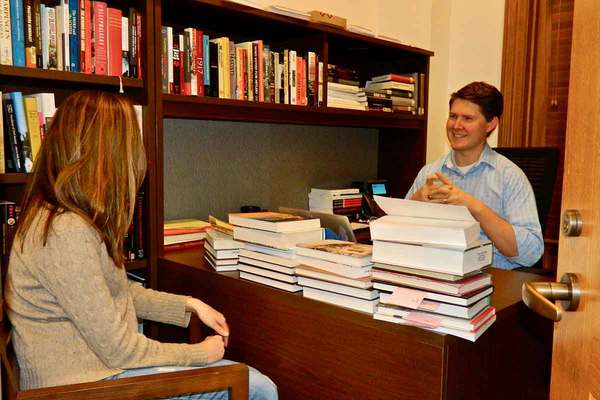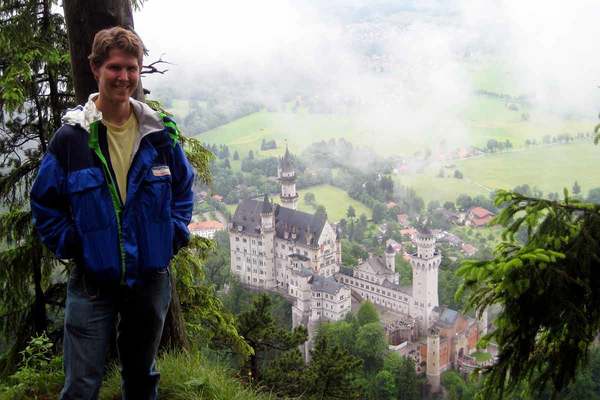

Currently a postdoctoral research associate, Mark Kettler now advises undergraduate students on their research questions and methodology at the Nanovic Institute for European Studies. He received the Barrett Prize for Best Undergraduate Proposal in 2011.
Read more
The study of Europe can transform you. Examining its rich and diverse cultures, societies, and histories can utterly change how you think about our contemporary world, often in unexpected ways. My studies in modern European history over the past decade have certainly altered my own perceptions of the world, probably to an extent that I don’t fully appreciate. I owe much of this growth to the Nanovic Institute. I was lucky enough to find the Nanovic Institute as an undergraduate. It guided me as I developed and investigated my own questions about Europe, and in doing so it transformed me from a passive student into an active scholar.
More than most research institutions at major universities, the Nanovic Institute dedicates itself to supporting undergraduate research and fostering Notre Dame students’ intellectual growth. I recognized this from the first time I interacted with the institute as a student years ago. I never felt that my ideas or questions were dismissed. Instead, I found an organization and community of scholars focused on deepening our understanding of Europe and its place in the world, and committed to the idea that undergraduate, graduate, and faculty research can all make valuable contributions to this effort.
Nanovic funding allowed me to undertake my first sustained research for my senior thesis in history. Through a generous Nanovic grant, I was able to conduct intensive research in archives and state libraries in both Berlin and Munich during the summer after my junior year. I investigated German and Bavarian veterans’ associations, in order to study why Bavarians, and in particular Bavarian Catholics, so ardently defended the German Empire in WWI, despite the lingering hostility to Catholic religiosity then prevalent in German society and politics. This research enabled me to offer my own unique contribution, grounded in original primary source research, to important historical questions. With the Nanovic Institute’s support, I was able to craft a quality senior thesis, which not only won the History Department’s senior thesis prize, but also sparked new questions which would inform my research as I pursued a Ph.D. in History.
.
The Nanovic Institute’s support of undergraduate research transformed me from a passive learner, into an active researcher and contributor to scholarly debates. Working with the Nanovic Institute taught me to develop clear and important questions, craft a research agenda to address them, and prosecute independent research to answer these questions. The experience served me well when I graduated from Notre Dame and entered a Ph.D. program in modern European history.
Having finished my Ph.D., I am again fortunate enough to receive the Nanovic Institute’s support as I develop my dissertation into a manuscript and explore new avenues of research. Working as a Postdoctoral Research Associate has also afforded me the opportunity to directly participate in the institute’s ongoing mission to support undergraduate research. By helping students to develop and refine their own questions and proposals, I am honored to assist, in some small way, the institute’s efforts to transform undergraduate students into active scholars of Europe.
As part of this effort, I am also the instructor of record for the upcoming inaugural European Studies course "What Is Europe?" offered by the Nanovic Institute and the Keough School of Global Affairs. Open to all majors from all colleges, this introductory course to the Transnational European Studies concentration within the Global Affairs major provides students the opportunity to meet with European officials and policy-makers, and discuss new research with eminent scholars of Europe from a variety of disciplines. To learn more about the course, click here.